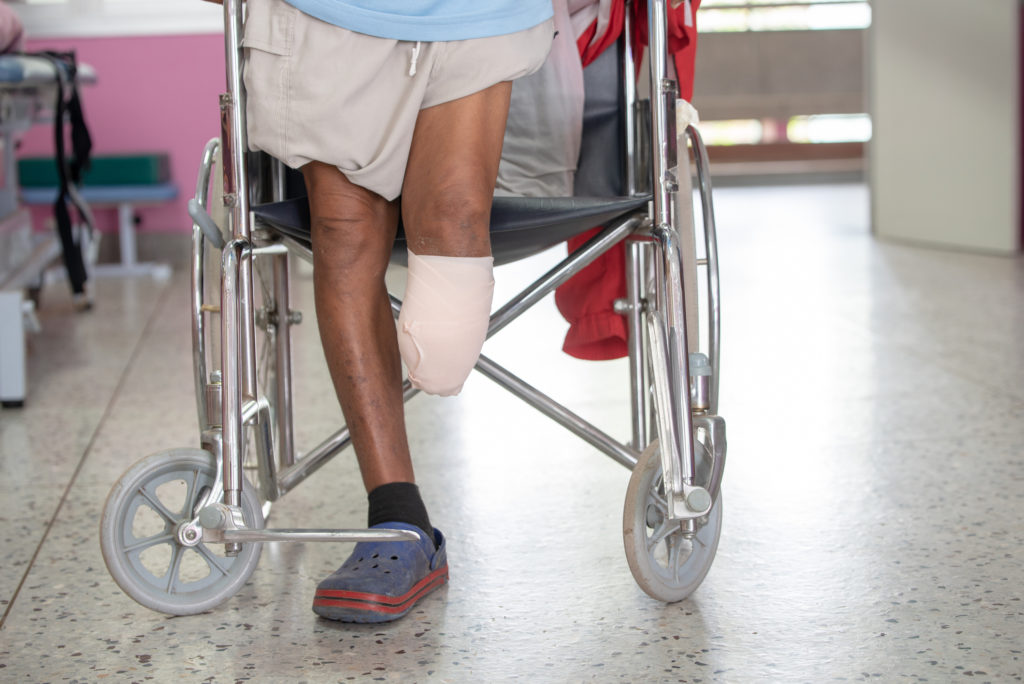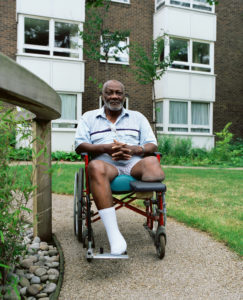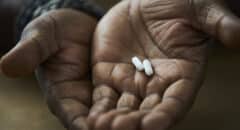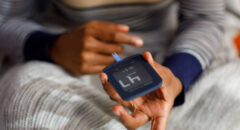
Amputations are somewhat common in the United States. The cause for an amputation may include circulatory disorders, infections, accidents, cancer or a congenital malformation of the limbs. What's not common is the rate the African Americans are having this procedure take place, especially due to uncontrolled diabetes.
Uncontrolled diabetes can have a number of harmful effects to your body: Without enough insulin, or when your cells can’t use it properly, sugar courses through your bloodstream. Plaque builds up faster in your vessels’ walls, slowing the blood moving to your eyes and ankles and toes. Blindness can follow, or dead tissue. Many can’t feel the pain of blood-starved limbs; the condition destroys nerves. If arteries close in the neck, it can cause a stroke. If they close in the heart, a heart attack. And if they close in the legs, gangrene.
Despite the great scientific strides in diabetes care, the rate of amputations across the country grew by 50% between 2009 and 2015. Diabetics undergo 130,000 amputations each year, often in low-income and underinsured neighborhoods. Black patients lose limbs at a rate triple that of others.
So, not only are living less and dying younger, we are also living sicker with less limbs.
More research is coming out about this including why it's being done. Some say it points to, in part, the policies written by hospitals, insurers and the government don’t require surgeons to consider limb-saving options before applying a blade; amputations increase, particularly among the poor.
According to research done by Mississippi Today, General surgeons have a financial incentive to amputate; they don’t get paid to operate if they recommend saving a limb. And many hospitals don’t direct doctors to order angiograms, the most reliable imaging to show if and precisely where blood flow is blocked, giving the clearest picture of whether an amputation is necessary and how much needs to be cut. Insurers don’t require the imaging, either.
But there is one doctor, Dr. Foluso Fakorede, who is trying to change all of this.
Foluso Fakorede, MD, is a practicing cardiologist and CEO of Cardiovascular Solutions of Central Mississippi as well as co-chair of the Pulmonary Artery Disease (PAD) Initiative for the Association of Black Cardiologists.
In a piece that he wrote for Fierce Healthcare, Dr. Fakorede wrote, "Research shows that African Americans with diabetes are three times more likely than white patients to have their limbs amputated as a result of... PAD. Other communities of color face similar disparities. For example, Hispanics are 75% more likely to have their limbs surgically removed, while Native Americans are more than twice as likely to face non-traumatic amputations."
"For racial minorities in Mississippi, where I work as a limb salvage specialist, the rates are even higher. Here at the epicenter of the PAD epidemic, nine out of 10 of amputees that I’ve encountered or evaluated have never had a diagnostic test for PAD or an appropriate vascular evaluation to salvage their limbs."
"A recent survey by the Centers for Disease Control and Prevention (CDC) showed that roughly 1 in 7 American adults with diabetes skipped a dose of insulin or took less of it because the medicine was too expensive—suggesting policy change is needed to make medications like insulin much more affordable."

"We can—and must—do better as a country. It is critical that physicians, policymakers and patients all confront the danger head on."
"Like other health crises, the first step to ensuring community health is awareness and determination to act."









